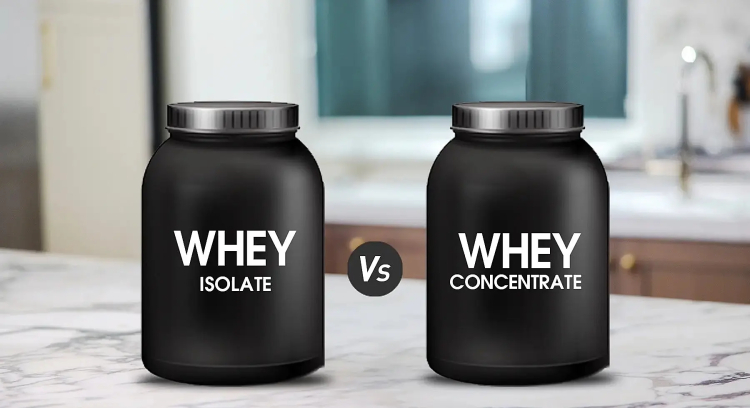Whey Protein vs. Whey Isolate: Understanding the Differences and Benefits
Discover the key differences between whey protein and whey isolate. Learn about their benefits, potential risks, and how to choose the right supplement for your fitness and health goals.

Whey Protein vs. Whey Isolate: Understanding the Differences and Benefits
Whey protein and whey isolate are staples in the fitness and health industry, yet many people remain unsure about their differences and unique benefits. In this guide, we'll break down what sets them apart, explore their advantages, and help you decide which option is best for your health and fitness goals.
What is Whey Protein?
Whey protein is a natural byproduct of cheese-making. During the process, enzymes separate milk into solid curds and liquid whey. While curds are used to make cheese, the liquid whey is pasteurized and dried into a powder. This powder contains eight essential proteins, including beta-lactoglobulin, alpha-lactalbumin, lactoferrin, and immunoglobulins.
What is Whey Isolate?
Whey isolate is a refined form of whey protein. Manufacturers process whey further to remove most of its fat and lactose, resulting in a protein-rich product. This makes whey isolate a great option for individuals seeking a low-calorie, low-lactose supplement.
Key Differences Between Whey Protein and Whey Isolate
Protein Content
Whey protein concentrate typically contains 70-80% protein, while whey isolate boasts a protein content of 90% or more.
Lactose Content
Whey isolate undergoes additional processing, reducing its lactose content significantly. This makes it ideal for people who are lactose-intolerant.
Calories and Fat
Whey protein concentrate contains more fat and calories than whey isolate, which is a leaner option.
Cost
Whey isolate is more expensive due to the extra processing it requires.
Benefits of Whey Protein and Whey Isolate
Both whey protein and whey isolate offer numerous health and fitness benefits:
- Muscle Growth: They contain all nine essential amino acids, which are critical for muscle repair and growth.
- Weight Management: High protein content supports muscle development without adding unnecessary calories.
- Faster Recovery: Whey protein aids recovery from injuries and surgeries.
- Nutritional Supplementation: These proteins fill dietary gaps, ensuring you meet your daily protein requirements.
Potential Risks to Consider
While whey protein and whey isolate have many benefits, there are potential downsides to keep in mind:
- Calories and Added Sugars: Some products contain added sugars or artificial ingredients, which can hinder weight loss goals.
- Digestive Issues: Whey protein concentrate has higher lactose content, which may cause stomach discomfort in lactose-intolerant individuals.
- Regulation: Protein supplements aren’t regulated by the FDA, so impurities or unlisted ingredients may be present. Look for certifications like NSF or Informed Choice for safer options.
- Over-reliance on Supplements: It’s better to get most of your protein from whole foods like lean meat, fish, beans, nuts, and seeds.
Choosing the Right Option
When deciding between whey protein and whey isolate, consider your individual needs:
- If you’re lactose-intolerant, choose whey isolate.
- For calorie-conscious diets, whey isolate is a better fit due to its lower fat and carbohydrate content.
- If cost is a concern, whey protein concentrate is more budget-friendly.
- When taste is a priority, whey concentrate’s richer flavor may be preferable.
Conclusion
Both whey protein and whey isolate are excellent choices for boosting protein intake. Your decision should depend on factors like lactose tolerance, calorie goals, taste preferences, and budget. Before incorporating supplements into your routine, consult a healthcare professional, especially if you have any health conditions or dietary restrictions.
FAQs
1. Which is better, whey or whey isolate?
Both provide similar benefits, but whey isolate is lower in lactose and calories.
2. Who should avoid whey protein?
Individuals with a milk allergy should steer clear of whey products since they’re derived from dairy.
3. Does whey protein help with weight loss?
Yes, it can support fat loss when combined with a balanced diet and regular exercise.
4. Can whey protein improve stamina?
Whey protein aids post-workout recovery, which may enhance stamina over time.
5. Are there risks to using whey protein?
Some risks include potential impurities, added sugars, and digestive issues for those sensitive to lactose. Always choose certified products to minimize risks










